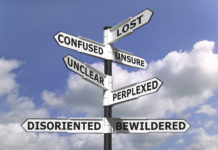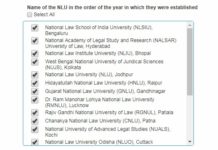This article has been submitted by Ishaan Chopra for the CLATGyan Blog Post Writing Competition. If you think it’s a good read, ‘Like’ the article on Facebook (the button is at the bottom of this piece) or post a comment using the ‘Comments’ section below.
Our ancestors lived in a seemingly small, yet peaceful world. Due to absence of sophisticated means of information disseminating sources, they were virtually cut off from the rest of the world. The world meant the political frontiers of nations and for some even the village boundaries. Information available was limited to scanty government library book shelves.
Unlike our ancestors, we live in a globalized world of information overflow. Globalization and the internet boom have transformed our planet into a small minuscule village. We have access to unlimited information at our disposal. According to a survey, 2bn people have access to internet. Internet or WWW (world wide web) is an intricate web of interconnected databases, collectively functioning as a perpetual source of information. Internet was initially developed to serve as a tool for the American military and was called ARPA net. From a recondite military device, Internet has transformed into a common man’s saviour. It is the modern engine of economic growth. More startups have been initiated in the internet era (start of 21st century) than any other period in history. Internet driven startups and outsourced services from the developed world forms the growth base of developing economies such as Philippines, India, Indonesia and Brazil. The international finance markets owe their existence to the internet. These markets are tied up through internet networks and function seamlessly across platforms in different nations. Culturally too, internet has contributed a lot to this generation. People belonging to different nationalities, castes, creeds and races coexist on the internet as netizens. We can call it a virtual social utopia – a place where each and every person has absolute freedom. People from across the globe are able to interact with each other. This helps in enhancing international understanding and mutual trust. Internet has given rise to new form of industries such as e-commerce and online banking. Even electronic currencies such as bitcoins have come into existence, creating a completely new paradigm of electronic economy.
The 21st century billionaires are not owners of factories, but magicians of computer programming.
But, internet too is a double edged sword. It has its inherent problems and defects, which if not dealt with can have a serious consequence on the human race. An interdependent system is an asset. However, an overtly dependent system is a liability. The world is tied intricately by optical fibre internet networks- a bit too intricately. The 20th century war strategists had nuclear weapons on the top of red alert list. The modern day strategists have cyber attacks on the top of their list. Cyber attacks are not only the mere hacking of accounts or email id’s. If inflicted on a large scale, these attacks can cause damages of catastrophic proportions. Imagine the scenario- a global cyber attack by an unidentified outfit. Banking systems collapse. Financial systems fail. Food supplies stop. Transportation comes to a standstill. The fortune 50 goes bankrupt. Nations grow suspicious of each other- triggering nuclear attacks.
The very image of this scenario is mind numbing. so what’s the solution? Will an internet free world be a safer world? If so, won’t the absence of internet jeopardize the interests of developing nations? These are rather debatable issues. I leave it to the readers to ponder and deliberate on these issues. The need of the hour is to build an internet network which is less vulnerable and capable of dealing with copious information flow. Otherwise, the world might be sailing on a ship without sail (a propeller in modern context!!).














